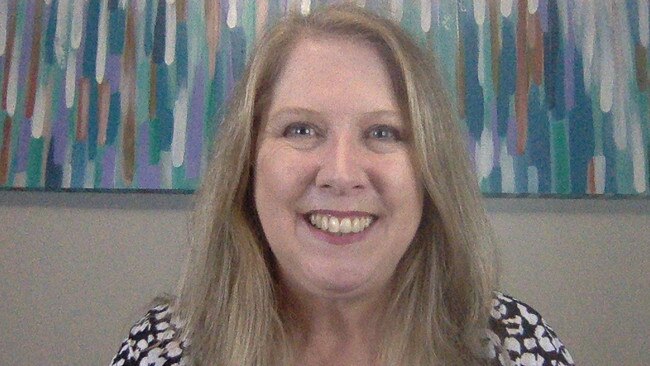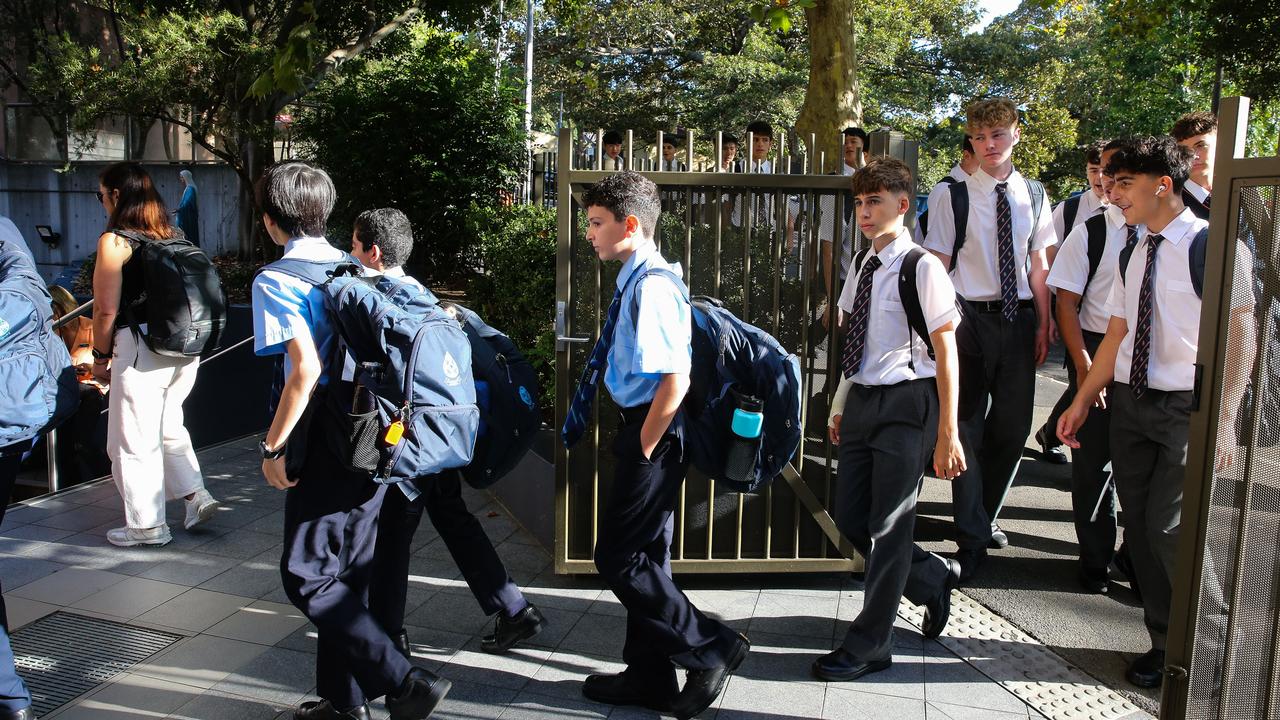Domestic violence: Women don’t ‘leave’ abusive situations, they ‘escape’
It’s a question asked somewhere in Australia every single day - but it hides a misconception that is costing women their lives.

Real Life
Don't miss out on the headlines from Real Life. Followed categories will be added to My News.
When a woman is killed at the hands of her partner, amid the grief and the outrage there’s a single question that often works its way into our national conversation: Why didn’t she just leave?
Before even dignifying it with an answer, Lisa McAdams – who has survived domestic abuse – says there’s one word in that question that has to change before our national conversation around domestic violence can.
“What I really want people to understand is that people don’t leave. They escape,” she told news.com.au.
“And they escape to a world with no money, no roof over their head, and you’ve been belittled.”
Ms McAdams grew up on the “very, very beautiful” south coast of England. But the nature of her childhood was at complete odds with the setting.
Abused by both of her parents – a father who she says was just “truly evil” and a “very controlling” mother – she never understood that being abused wasn’t normal.
On average, one woman a week is murdered by her current or former partner.
Almost 10 women a day are hospitalised for assault injuries at the hands of a spouse or domestic partner.
Every day in May, as part of Domestic and Family Violence Awareness Month, news.com.au will tell the stories behind these shocking statistics.
RELATED: Devastating story behind this image

“It sounds awful now, but I was so indoctrinated to being abused, I didn’t think it was wrong. I thought it was me that made people [behave] like that, because I was so annoying,” Ms McAdams said.
“But once everybody was the same with my children, it sort of opened a window to say, ‘Maybe it’s not me, maybe it’s them. If they can’t see how wonderful these little people are then …’ It made me question. I wouldn’t say that I had any answers but it made me question that maybe this isn’t how life’s supposed to be.”
Like so many others, though, Ms McAdams didn’t flee to a life that was any safer.
“I literally took my children out of what was financially a very comfortable life to abject poverty, on the hope it was the right thing to do,” she said.
After leaving a women’s shelter, her family was put into housing that was “completely unsuitable” – where the male tenant upstairs asked her infant daughter to “show him who was on her undies” and human faeces often littered the family’s walk to the car.
Their living conditions – and especially her struggles with an employment agency and Centrelink – triggered her post-traumatic stress disorder (PTSD), meaning that rebuilding her life took an even greater deal of strength.
“I’ve ended up in more debt because the system failed me. It’s just set up to keep you down. And I’ve said it before – abuse is horrible, but poverty is a pretty nasty beast as well,” Ms McAdams said. “And it limits what you can do, and the system’s not set up to encourage you.
“People treated me like I’d had this plan all along to marry someone really awful so I could screw the government out of money … and they don’t get how broken you are. And if you haven’t got physical injuries to show them, they don’t know they’re there.”
It’s for this reason that, for women who aren’t with a man who is physically abusive, Ms McAdams said she “can imagine that you’d think it’s probably better to stay”.
“So what’s the message? We’re saying women should leave, but there’s nowhere for them to go. We’re saying they should protect their children, but is it protecting your children to sleep somewhere in a car? Does that feel like protecting your children? And then Centrelink won’t help them. It’s disheartening,” she said.
“And what starts a national conversation? I know it sounds awful, but in the Indigenous community, domestic violence is epidemic. It’s shameful. But let’s be real, there’s a way to look and get noticed.
“And it’s changing, but Hannah [Clarke] and her children – they were like Australian beautiful beach people. They couldn’t have been more quintessentially Australian, and if they don’t matter, then what message does that send to any woman who thinks she might get help if she leaves?
“I just, I feel like still, there’s an expectation for women to leave, and they’re ‘weak’ if they stay, but where the hell do they go? And Hannah’s proved that – staying with family or in the home isn’t an option.”
RELATED: ‘Go for the throat’: Moment man ‘cracked’
Among survivors, Ms McAdams said, it doesn’t matter your ethnicity; whether you’re rich or poor.
“We all speak the same language. This hideous language we wish we didn’t know. And it breaks down barriers. They’re somebody you just look in the eye and you know, ‘I’ve lived your story.’
“And I’m very much, if we don’t cure this for all, we’re not going to cure it for anyone, because no woman is worth more than another woman,” she said.
“Until there’s a real willingness to change, we’re just putting Band-Aids on it. And there will be another Kelly. And there will be another Kobi.
“For me, there’s a mum, at home, whose baby won’t wake up. And there’s children who keep saying, ‘Where’s Mummy?’ You can’t explain it, can you? And that’s what keeps me going. Because there shouldn’t be anymore.”
If you have a story you want to share confidentially, please email natalie.brown@news.com.au
Originally published as Domestic violence: Women don’t ‘leave’ abusive situations, they ‘escape’



